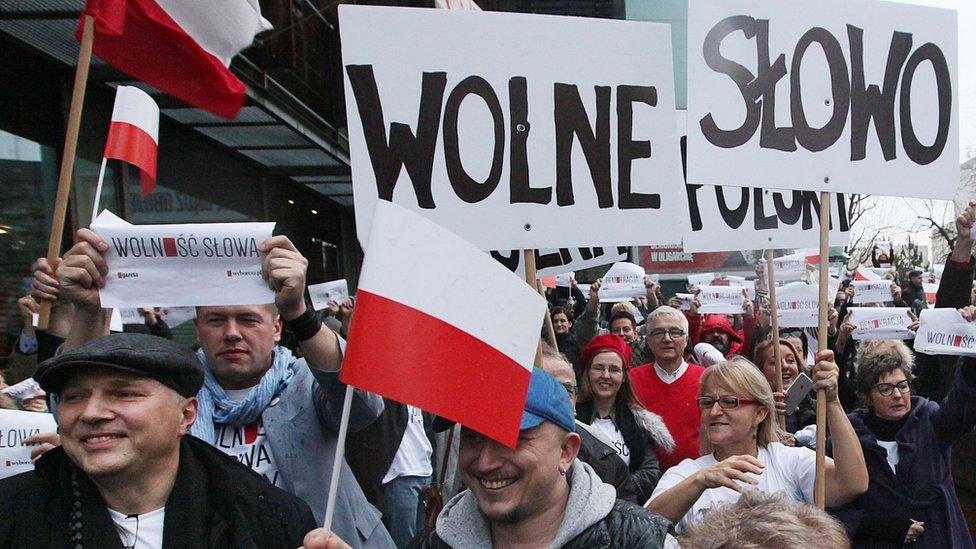Changes to Poland's top court 'weaken democracy'
- Published
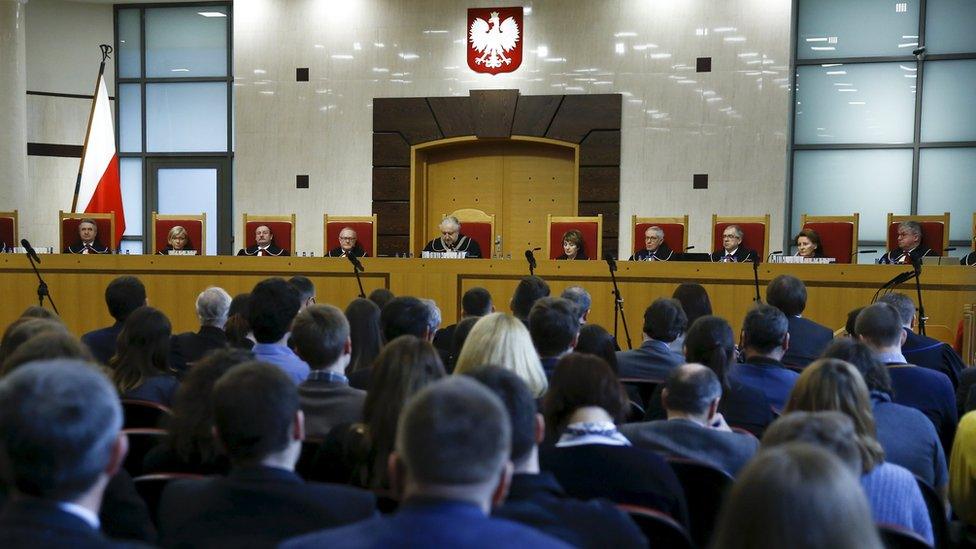
The government has refused to recognise the court's ruling against the changes
Changes to Poland's top court by the new government undermine the rule of law and weaken democracy, the Council of Europe has said.
The reforms make the Constitutional Court ineffective, the European human rights body adds, external.
The opinion is likely to deepen Poland's constitutional crisis, observers say.
Late last year the right-wing government passed legal amendments changing the way the court operates.
The changes introduced by the ruling Law and Justice party (PiS) require a two-thirds majority of the 15 judges to support a ruling for it to be valid, and also stipulate a quorum of 13 judges for rulings to be valid.
Why is Poland worrying the EU?
Government takes control of state media
The council's Venice Commission, which gives advice on legal issues, said: "[The reforms] endanger not only the rule of law but also the functioning of the democratic system because they render an important factor of checks and balances ineffective."
"Human rights would also be endangered since the right to a fair trial before an independent court - the Constitutional Tribunal - is compromised as well as the tribunal's ability to ensure that national legislation respects human rights."
The opinion is not legally binding, but the European Commission said it would use it in its investigation into a possible breach of the rule of law in Poland.
Solution 'must be found'
Earlier this week, Poland's Constitutional Court ruled that the changes were illegal.
But the government has refused to recognise the judgement, a move the commission said was "unprecedented" and that "would further deepen the crisis".
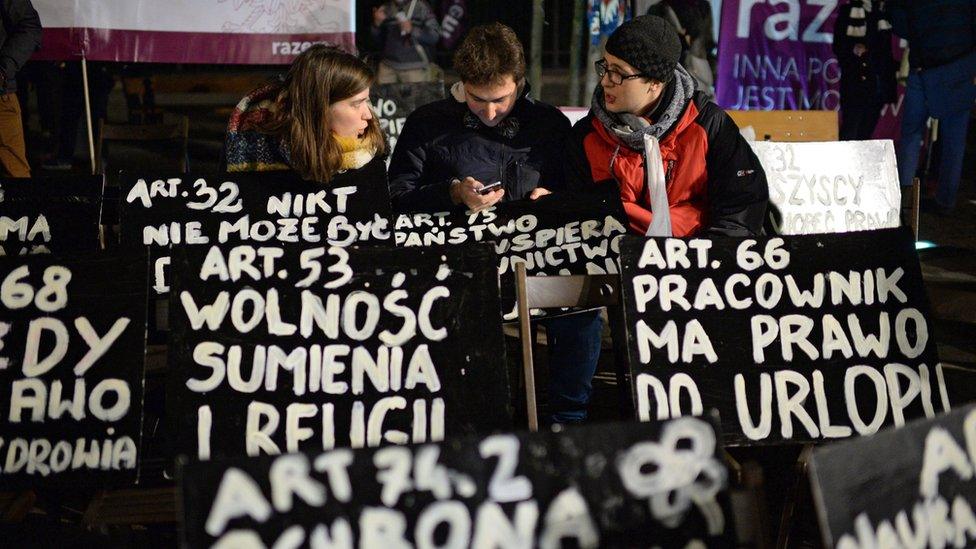
Thousands of Poles have protested against the new legislation in recent weeks
Critics have said the changes mean the court is now unable to examine government legislation, and the issue has sparked mass protests in Poland.
The Venice Commission said a solution "must be found" and called on all state organs and the parliament to implement the tribunal decisions.
The government has also been under pressure from both the European Union and the US to resolve the crisis, the BBC's Adam Easton in Warsaw says.
Reacting to the statement, Poland's Deputy Foreign Minister, Konrad Szymanski, said it was "controversial" but his government would take it very seriously.
Since coming to power in October, the PiS has also come to blows with the media and the opposition, our correspondent adds.
Recently approved media laws have placed public radio and TV under a new national media council and have given the treasury minister the right to hire and fire management.
- Published9 March 2016

- Published13 January 2016
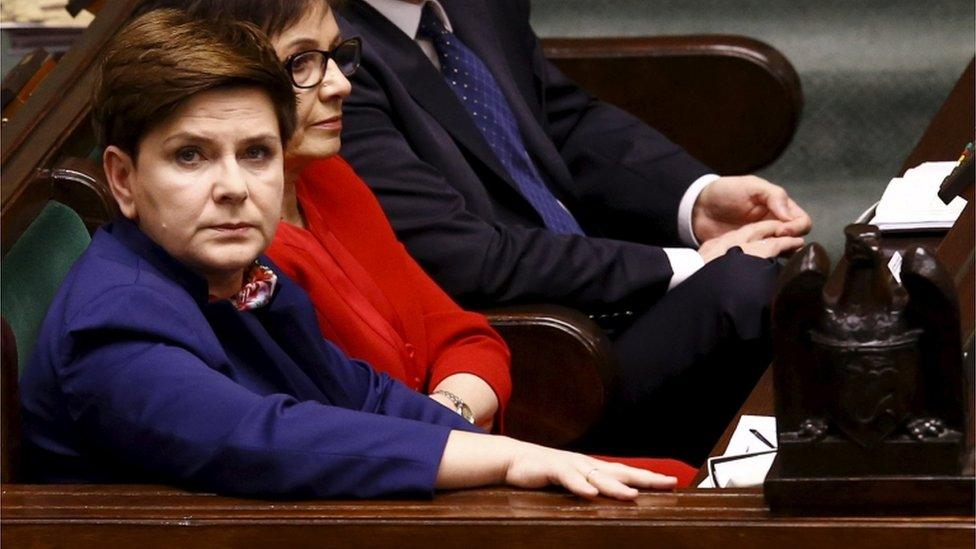
- Published13 January 2016
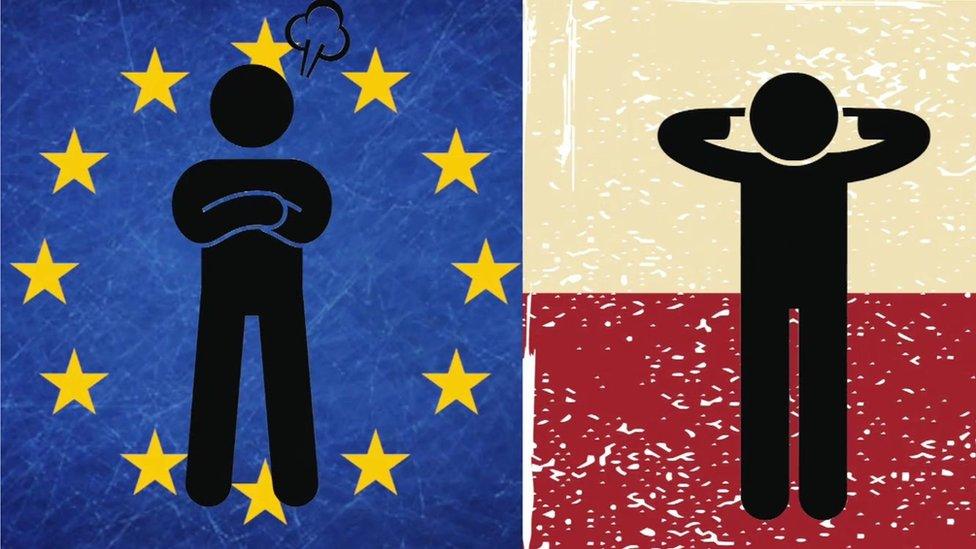
- Published28 December 2015

- Published7 January 2016
